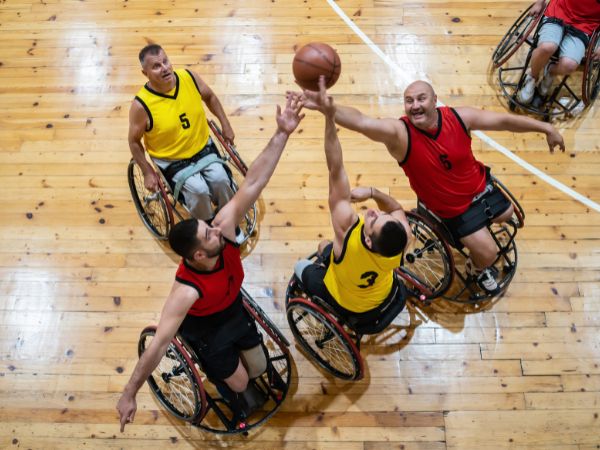When it comes to invigorating the body and spirit, few things are as effective as sports and recreational activities. However, for individuals with disabilities, traditional sports may present significant barriers. This is where adaptive sports and recreation come into play, leveling the playing field and offering opportunities for everyone to engage in physical activities. Let’s dive into the exciting world of adaptive sports and recreation, exploring how these activities not only promote physical health but also foster community, resilience, and empowerment. Join Our Exciting Adaptive Sports and Recreation Programs. Find Out More on the Special Strong Website!
What are Adaptive Sports and Recreation?
Adaptive sports and recreation refer to physical activities modified or designed for individuals with disabilities. These activities range from wheelchair basketball to adaptive skiing, ensuring everyone, regardless of ability, can participate and enjoy the benefits of sports.
The Evolution of Adaptive Sports
- Historical Overview: The roots of adaptive sports can be traced back to rehabilitation programs for war veterans.
- Paralympics Influence: The growth of the Paralympic Games has played a pivotal role in popularizing adaptive sports globally.
Benefits of Participating in Adaptive Sports
Adaptive sports and recreation aren’t just about staying physically active; they’re a gateway to a myriad of benefits:
- Physical Health: Regular participation improves strength, balance, and cardiovascular health.
- Mental Well-being: They offer a mental boost, reducing stress and enhancing mood.
- Social Connections: Engaging in sports creates opportunities for socializing and building friendships.
- Confidence and Independence: Achieving goals in sports can spill over into other life areas, boosting self-esteem and autonomy.
Exploring Various Adaptive Sports
Adaptive sports and recreation cover a broad spectrum, from team sports to individual challenges:
- Wheelchair Basketball: Fast-paced and strategic, it’s a popular team sport worldwide.
- Adaptive Climbing: Climbing walls equipped with adaptive equipment cater to various abilities.
- Sledge Hockey: Ice hockey adapted for individuals who use sledges.
- Paralympic Swimming: Competitive swimming with categories based on different disability levels.
- Adaptive Surfing: Catching waves with modified boards and assistance if needed.
Each of these sports adapts rules and equipment to meet the needs of participants, ensuring everyone gets a fair and enjoyable experience.
Starting with Adaptive Sports and Recreation
Wondering how to get involved? Here’s how you can start:
- Research Local Clubs: Many communities have clubs or organizations dedicated to adaptive sports.
- Consult Healthcare Providers: They can offer guidance on suitable activities.
- Try Different Sports: Experiment with various sports to find your passion.
Overcoming Challenges in Adaptive Sports
While adaptive sports are empowering, they come with their own set of challenges:
- Accessibility: Finding accessible facilities and programs can be difficult.
- Cost: Adaptive equipment and transportation can be expensive.
- Awareness and Support: There’s a need for greater public awareness and support for these sports.
Adaptive Sports and Recreation: A Community Effort
The growth and success of adaptive sports and recreation depend on community involvement. Volunteers, sponsors, and supporters play crucial roles in making these activities accessible and enjoyable for all.
Building an Inclusive Community
- Volunteering: Offering time at events or clubs can make a big difference.
- Sponsorships and Donations: Financial support helps in purchasing equipment and organizing events.
- Raising Awareness: Sharing information and experiences promotes a more inclusive society.
FAQs About Adaptive Sports and Recreation
- Are adaptive sports only for athletes with physical disabilities? No, they cater to a wide range of disabilities, including intellectual and sensory impairments.
- Can able-bodied individuals participate in adaptive sports? Yes, many adaptive sports welcome able-bodied participants, often as part of mixed teams.
- Is there age restriction in adaptive sports? Most sports are inclusive of all ages, with programs tailored for children, adults, and seniors.
Conclusion
Adaptive sports and recreation are more than just modified games; they’re a testament to the resilience and determination of the human spirit. They break down barriers, build communities, and empower individuals. Whether you’re a participant, volunteer, or supporter, your involvement in adaptive sports and recreation contributes to a more inclusive and vibrant world.

